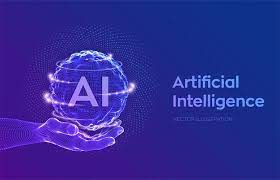Artificial Intelligence (AI) is rapidly becoming an integral part of many organisations, revolutionising the way they operate. While the technology offers numerous advantages, such as automation and data analysis, it also presents a unique set of challenges never really encountered before.
These challenges employers will face increasingly within the workplace. These are some of the issues it raises in its early days, and some action points you can look at now.
The Challenges
Job Displacement and Redundancy
One of the most significant concerns surrounding AI is job displacement. As AI systems become increasingly sophisticated, they can perform tasks that were once exclusive to humans, leading to job redundancies.
Employee Morale and Perception
Where employees perceive AI as a threat to their job security, it will lead inevitably to decreased morale and productivity.
Ethical Considerations
AI systems, especially those involved in recruitment, can inadvertently perpetuate biases already present in the data they use, leading to unfair and possible discriminatory hiring, promotion and are likely to impact on other HR and employment practices. This will depend on how AI is used and perhaps, more importantly, how it is allowed to make decisions that affect the wider workforce, including its workers, suppliers, contractors.
Data Privacy and Security
AI systems often require vast amounts of data to function effectively. This raises concerns about data privacy, and the potential for breaches. And, how employers control their own staff’s use of the technology, and especially what data they share with AI systems.
Dependence on Technology
Over-reliance on AI can lead to a serious lack of human oversight, potentially resulting in errors or misjudgements that a human would either not have let happen, or not without questioning the resultant outcome.
Skill Gap and Training
The introduction of AI in the workplace necessitates new skills. There might be a gap between the skills employees currently possess and those required to work with AI.
Cost of Implementation
AI systems can be expensive to implement and maintain. Employers must weigh the costs against the benefits carefully.
Legal Implications
The use of AI in HR processes can expose employers to legal risks, especially if the AI system makes a decision that leads to unlawful discrimination.
Six Action Points for Employers
Based on the challenges outlined above, here are six action points for employers:
- Conduct Ethical Audits: Regularly review and update AI systems to ensure they are free from biases. This will help in maintaining ethical standards in recruitment and other HR processes.
- Data Protection Compliance: Invest in robust cybersecurity measures, and ensure compliance with data protection laws. This will help to safeguard the organisation against data breaches and legal repercussions.
- Upskill Employees: Focus on continuous training programmes to prepare employees for the changes that AI will bring, so that fear is replaced with better understanding, greater acceptance and less resistance. This will help in closing the skill gap and making the transition smoother.
- Transparent Communication: Having decided how within an organisation AI would be beneficial, engage in open dialogue with employees to address their concerns about AI and job security. Transparency is key to maintaining employee morale and productivity.
- Cost-Benefit Analysis: Thoroughly evaluate the financial implications, including both initial setup and ongoing maintenance costs, of implementing AI. This will help in making informed decisions.
- Legal Consultation: Consult with professionals to understand any potential legal risks associated with the use of AI in HR processes, and how to mitigate them.
Conclusion
While AI can, and will, present numerous challenges to employers, and indeed HR consultancies, proactive measures and a forward-thinking approach can ensure that employers harness the benefits of AI, while safeguarding their workforce and maintaining ethical standards. By understanding these challenges, and taking the suggested action points into account, employers can navigate the complex landscape of AI effectively.
BackupHR will be discussing this topic at the beginning of our Autumn programme of monthly webinars, starting on Tuesday 19th September, so put this date in the diary, and if you are already on our database look out for the webinar invitation.
Not getting information about our free webinars? Contact Jackie Bolton on jackie@backuphr.com and she will add your details to our database for future invites.
The guidance provided in this article is just that – guidance. Before taking any action, make sure that you know what you are doing, or call an expert for specific advice.


